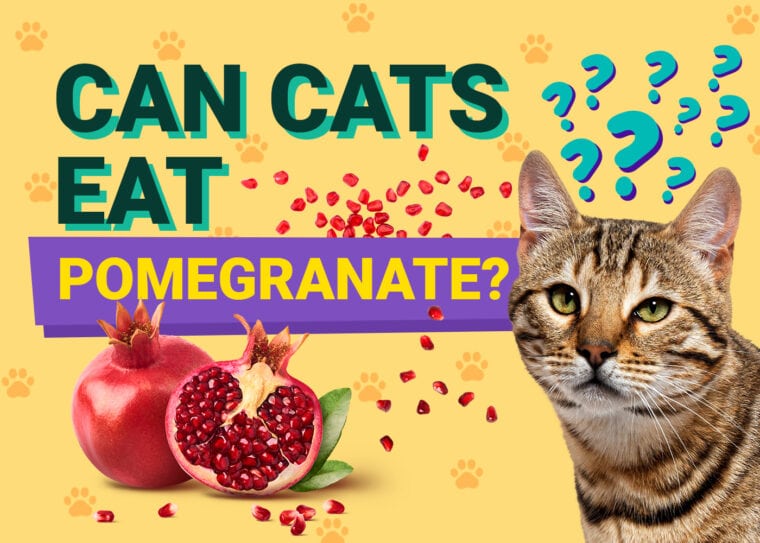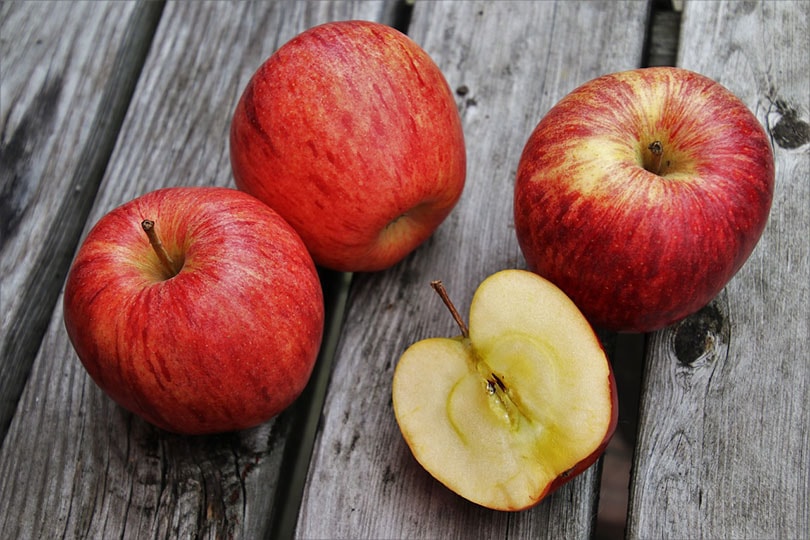
Pomegranates are delicious exotic fruits that are commonly used in smoothies, baking, and beverages and are known for their amazing health benefits to humans. But can cats eat pomegranates? Are pomegranates safe for cats?
With all the health benefits found in pomegranates, including fiber and vitamin C, you may be tempted to treat your cat to pomegranate too. In small amounts, pomegranates are safe for cats and may even have health benefits. That said, remember that cats are obligate carnivores, and too much of any fruit, including pomegranates, is not healthy for them.
In this article, we look at the potential benefits of feeding pomegranates to your feline, how much is safe, and the potential risks involved in feeding them this delicious fruit. Let’s get started!
Potential benefits of feeding pomegranate to your cat
First of all, pomegranate is not toxic to your feline, so while there is a bit of a risk of feeding them too much, the fruit is perfectly safe and even nutritious in small amounts. The fruit is low in calories and free from saturated fats and cholesterol, making it a safe, low-calorie snack.
Pomegranates are loaded with natural vitamin C, a potent antioxidant that combats the oxidization of cells and promotes overall health.

That said, cats synthesize their own vitamin C in the liver, meaning that additional vitamin C is not essential and should be kept to natural sources, like pomegranate.
Pomegranates are also a source of anthocyanins, an antioxidant and antiinflammatory present in some red, purple, and blue fruits such as blueberries. Antioxidants prevent the free radical damage to cells. Moreover, experimental studies in laboratory animals suggest that anthocyanins help to reverse gastric ulcers.
Another potential benefit is that pomegranates contain some fiber, which can help improve your cat’s digestion and gut health. Although cats are carnivores and in the wild would get all the fiber that they need from the fur of their prey, most domestic cats need a small amount of additional fiber in their diet.
Pomegranates are also a source of potassium, which plays an essential role in several body functions, including the regulation of electrical impulses between the nerves and muscles. is
Pomegranates also have a high water content, which is a great way to give your feline extra hydration in the summer months.
Potential health risks of feeding pomegranates to cats
While pomegranates are non-toxic, there are still risks associated with giving them to your cat. Cats are obligate carnivores, and too much of any fruit is not ideal. Pomegranates are lower in sugar than some other common fruits, but they still have enough to cause potential problems for felines, especially cats that are diabetic or have weight issues. In excess, they can also cause digestive problems in cats, potentially causing loose stools and diarrhea.
The fresh fruit from pomegranates is best for your cat, and you should avoid juices or processed pomegranates, as these often contain even more sugar and often have added preservatives, colorants, and even flavorings. Since cats do not chew on their food, pomegranate seeds could represent a hazard. It is safer to put them in the blender before offering them to your cat.
Remember that pomegranates and any other fruit should be given as occasional treats only and cannot replace any part of your cat’s nutritional needs.
Can cats eat other fruits?
While fruits are not essential in a cat’s diet, there are a few that are perfectly safe in small amounts and can even have potential health benefits.
These include:

Fruits to avoid at all costs include:
Knowing exactly what your feline companion can and cannot eat will help you become the best pet parent. Recognizing that not all cat bowls are equal is also key! The Hepper NomNom Cat Bowl sets itself apart from traditional options by catering to the specific needs of cats. The innovative design offers whisker relief via shallow dishes and promotes digestion with a slight bowl elevation. Find out if the Hepper NomNom is right for your cat by clicking here.
At Pet Keen, we’ve admired Hepper for many years and decided to take a controlling ownership interest so that we could benefit from the outstanding designs of this cool cat company!
Final Thoughts
Can cats eat pomegranates? In small amounts, this fruit is non-toxic and has several potential health benefits for your feline, including vitamins, fiber, and minerals. They are also an additional source of hydration in hot climates. As with all fruits, there are risks to be aware of, and the high sugar content and potential for stomach issues make pomegranates occasional snacks only.
Cats are carnivores first and foremost, so any fruit—even those with potential health benefits—should be given in moderation and can never be a replacement for any part of your cat’s normal diet.
See also:
Featured Image: itanapunyo, Pixabay









